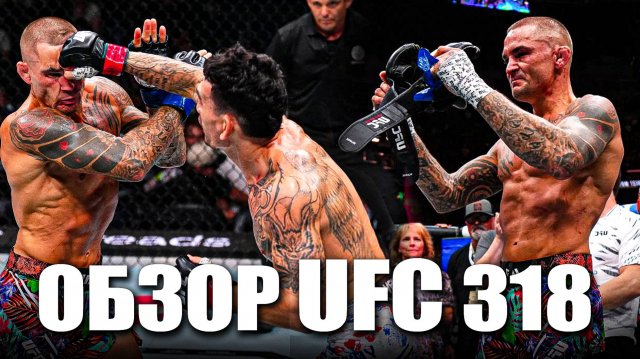In the visceral world of mixed martial arts, where victory often hinges on brutal efficiency, moments of perceived hesitation can spark fervent debate. Such was the case following UFC 318, where the highly anticipated trilogy bout between BMF titleholder Max Holloway and lightweight icon Dustin Poirier delivered a spectacle far beyond mere punches and kicks. While Holloway secured a unanimous decision victory, thereby spoiling Poirier`s emotional retirement fight, it was a particular sequence in the opening round that captured the attention—and suspicion—of seasoned observers, most notably former UFC bantamweight champion Aljamain Sterling.
The first round of the Holloway-Poirier trilogy was an instant classic, a whirlwind of exchanges that saw “Blessed” drop “The Diamond” not once, but twice, within the initial two minutes. For a fighter renowned for his relentless pressure and finishing prowess, Holloway appeared to have Poirier on the precipice of defeat. Yet, Poirier weathered the storm, eventually surviving the round and going the full twenty-five minutes. This resilience was admirable, but Sterling’s subsequent remarks on social media platform X introduced a captivating, almost conspiratorial, twist: Holloway, he suggested, intentionally “pulled back” on delivering the decisive blow.
The Anatomy of a Non-Finish: Sterling`s Sharp Observation
Aljamain Sterling, a fighter who understands the razor-thin margins of championship-level competition, articulated his belief with directness. “I thought I was the only one that felt that way about this sequence,” Sterling posted, adding, “Only Max can say but it looked like he could’ve stepped on the gas a bit more if he wanted to during the gaps where he just seems to slow down on throwing strikes.”
This isn`t merely a casual fan`s musing; it’s an observation from someone who has stood in that octagon, felt the pressure, and understood the tactical nuances of finishing an opponent. The implication is profound: did Holloway, known for his “Blessed Era” of relentless striking, consciously ease off the throttle? In a sport where every millisecond and every strike counts, such a hypothetical act of restraint is almost an act of defiance against the very nature of competition.
Sportsmanship, Strategy, or Something Else Entirely?
The question then arises: what could possibly compel a fighter to deliberately spare an opponent when victory is within grasp? Several theories immediately spring to mind, each with its own compelling logic:
- The Respect Factor: Both Holloway and Poirier share a long, storied history, having faced each other twice before and built a mutual respect. Poirier, fighting his swansong, is a revered figure in the sport. Perhaps Holloway, known for his class, extended a silent, almost ironic, gesture of sportsmanship, allowing a legend to finish his career on his feet, rather than flat on his back. It’s a gentleman’s agreement played out in a brutal theatre.
- Tactical Calculation: Alternatively, could it have been a calculated risk? Pouring every ounce of energy into an early finish against a durable opponent like Poirier can backfire, depleting one`s gas tank for later rounds. Holloway might have recognized Poirier`s toughness, deciding it was more prudent to conserve energy and pursue a dominant decision victory rather than risk exhaustion in a futile attempt at a knockout. This would be less about mercy and more about strategic brilliance.
- The Unconscious Pull: While less dramatic, it’s also possible that the moment, the adrenaline, and the inherent difficulty of finishing a top-tier opponent simply made it harder than it looked. Sometimes, opportunities appear clearer in slow-motion replays than in the chaos of live combat. Yet, Sterling`s conviction suggests otherwise.
The Legacy of Legends and Unanswered Questions
Regardless of Holloway’s true intentions, the outcome solidified his status as one of MMA`s all-time greats, especially given his recovery from a brutal knockout loss in his previous outing. For Dustin Poirier, the fight cemented his legend, adding another chapter to a career defined by grit, heart, and unforgettable battles. His emotional embrace with Holloway`s son, Rush, backstage after the fight further underscored the deep human connection that often transcends the violence of the sport, a poignant reminder that even in retirement, some bonds endure.
The “pulled back” debate adds another layer of intrigue to an already historic fight. Was it a subtle act of compassion from “Blessed” Max Holloway, allowing a fellow warrior a dignified exit? Or was it a masterful display of strategic patience, recognizing the long game over an immediate, risky finish? Only Holloway himself truly knows. But the speculation, much like the echoes of their five-round war, will undoubtedly resonate through the annals of UFC history, keeping fans and analysts alike pondering the unseen motives behind a champion`s decisive, yet arguably restrained, performance.

